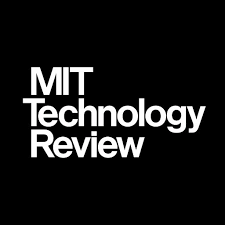
Extractive summaries and key takeaways from the articles curated from TOP TEN BUSINESS MAGAZINES to promote informed business decision-making | Since September 2017 | Week 312 | September 1-7, 2023

How one elite university is approaching ChatGPT this school year
By Tate Ryan-Mosley | MIT Technology Review | September 4, 2023
Extractive Summary of the Article | Listen
Last winter and spring brought so many headlines about AI in the classroom, with some panicked schools going as far as to ban ChatGPT altogether. Now, with the summer months having offered a bit of time for reflection, some schools seem to be reconsidering their approach.
For a perspective on how higher education institutions are now approaching the technology in the classroom, the author spoke with Jenny Frederick. She is the associate provost at Yale University and the founding director of the Poorvu Center for Teaching and Learning, which provides resources for faculty and students. She has also helped lead Yale’s approach to ChatGPT. The following are some of the key takeaways from the interview.
There was no moment, ever, when Yale thought about banning it. We thought about how we can encourage an environment of learning and experimentation in our role as a university. This is a new technology, but this is not just a technical change; it’s a moment in society that’s challenging how we think about humans, how we think about knowledge, how we think about learning and what it means.
We have to think about justifying the learning we’re asking students to do when, yes, a machine could do it.
Students run out of time, they overestimate their abilities, they get overwhelmed, something turns out to be really hard. They’re stuck in a corner, and then they make the unfortunate decision. So yes, ChatGPT provides another way for people to cheat, but I think the path for people to get there is still the same path. So let’s work on that path.
The students in general are way ahead of the faculty. They’ve grown up in a world where new technologies are coming and going, and they’re trying things out. And of course, ChatGPT is the latest thing, so they’re using it. They want to use it responsibly. They’re asking “What’s allowed? Look at all these things I could do. Am I allowed to do that?”
So the advice that I gave to faculty was that you need to be trying this out. You need to at least be conversant in what your students are able to do, and think about your assignments and what this tool enables. What policies or what guidance are you gonna give students in terms of whether they are allowed to use it? In what way would you be allowed to use it?
If you’re teaching, you need to realize that the world has AI now. And so students need to be prepared for a world where this is going to be integrated in industries in different ways. We do need to prepare them.
2 key takeaways from the article
- Last winter and spring brought so many headlines about AI in the classroom, with some panicked schools going as far as to ban ChatGPT altogether. Now, with the summer months having offered a bit of time for reflection, some schools seem to be reconsidering their approach.
- Yale University’s founding director of the Poorvu Center for Teaching and Learning, which provides resources for faculty and students offers the three perspectives on how an educational institute should approach to ChatGPT. One, This is a new technology, but this is not just a technical change; it’s a moment in society that’s challenging how we think about humans, how we think about knowledge, how we think about learning and what it means. Two, we have to think about justifying the learning we’re asking students to do when, yes, a machine could do it. Three, If you’re teaching, you need to realize that the world has AI now. And so students need to be prepared for a world where this is going to be integrated in industries in different ways. We do need to prepare them.
(Copyrights lies with the publisher)
Topics: Technology, Artificial Intelligence, Education
